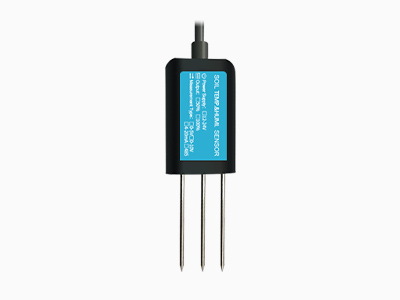Introduction to Soil Moisture Probes
Soil moisture probe, also known as soil moisture sensors, are devices that measure the amount of water present in the soil. These probes utilize various sensing technologies, such as capacitance, time domain reflectometry (TDR), or neutron scattering, to determine the soil moisture content accurately. They are inserted into the ground at different depths and provide continuous, real-time measurements of soil moisture levels.

Understanding the Importance of Soil Moisture Management
Soil moisture directly affects plant growth, nutrient uptake, and water use efficiency. Adequate soil moisture levels are essential for germination, root development, and overall crop health. Effective soil moisture management optimizes irrigation scheduling, reduces water waste, and enhances crop productivity. Soil moisture probes play a crucial role in assessing soil moisture content, enabling informed irrigation decisions.
Advantages of Soil Moisture Probes

Soil moisture probe offer several advantages over traditional irrigation management methods. Firstly, they provide accurate and reliable data on soil moisture content, enabling farmers to make precise irrigation decisions based on actual water needs rather than guesswork. Secondly, these probes support efficient water use by indicating when irrigation is necessary, preventing overwatering or under watering. Additionally, soil moisture probes help identify areas of the field with inconsistent moisture levels, enabling targeted irrigation strategies.
Application in Precision Agriculture
Soil moisture probes find extensive application in precision agriculture, a farming approach that utilizes technology to optimize crop production. By providing real-time data on soil moisture, these probes enable farmers to implement site-specific irrigation strategies. This targeted approach ensures that each crop receives the right amount of water, reducing water waste and promoting optimal plant growth. Furthermore, soil moisture data collected by these probes can be integrated with other parameters such as weather data and crop models to support data-driven decision-making.
Integration with Irrigation Systems
Soil moisture probes can be integrated with automated irrigation systems for efficient water management. By connecting the probe data to a centralized control system, farmers can automate irrigation schedules based on soil moisture thresholds. This integration allows for precise, timely irrigation, reducing manual labor and ensuring that crops receive water when they need it the most. It also minimizes the risk of overwatering, which can lead to nutrient leaching and waterlogging issues.
Future Developments and Challenges
Continual advancements in sensor technology and data analytics are driving the evolution of soil moisture probes. Future developments may include wireless connectivity, remote monitoring capabilities, and integration with predictive models to optimize irrigation efficiency further. Challenges to address include sensor calibration, ensuring durability in harsh environmental conditions, and promoting widespread adoption of these technologies among farmers.
Conclusion:
Soil moisture probes are valuable tools for optimizing irrigation management and enhancing agricultural productivity. These probes provide real-time data on soil moisture content, supporting precision agriculture practices and enabling farmers to make informed irrigation decisions. The integration of soil moisture probes with automated irrigation systems further enhances water use efficiency and reduces environmental impacts. As technology continues to advance, soil moisture probes will play an increasingly vital role in sustainable agriculture, ensuring optimal soil moisture levels and maximizing crop yields.
